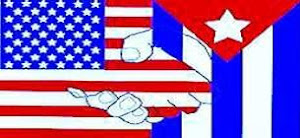The recent congressional hearing on U.S. Cuba policy in the Ways and Means Subcommittee on Trade on April 29, 2010 revealed the difficult road ahead to a pathway of normalization. It is as if anytime there is a possibility for improvement, always the obstacle is thrown again to block it—by both countries. The adversaries of improving U.S. Cuba relations are ignorance, arrogance, and fear. Congressman Brady’s comments carried in the AP story is a great example. First, the news story failed to mention that the Congressman is the recipient of a $1000.00 campaign contribution from the pro-embargo PAC. Nothing illegal here mind you, but a little more transparency would be more respectful to the voters and the public. In addition, what does Congressman Brady know when he himself has never even traveled to Cuba? He has no firsthand personal experience to refer to – only to what he reads and is told by his embargo PAC buddies. They certainly got their thousand bucks worth. (Note to the people - Congress is really not that expensive.... ) Finally, he places a pre-condition to lifting the embargo that does not make sense when you think intelligently about it. The combination of the embargo and the flawed economic/political system in Cuba have destroyed the capital infrastructure there. In any compensation plan, there will have to be some capital creation mechanism so that there could be a basis to pay outstanding claims. There is not one now in Cuba. In addition who is to say that any “post Castro democratic government in Cuba” is not going to make a claim on the United States for the billions in economic damages suffered by the imposition of the embargo? Congressman Brady also seems to forget that Congress passed legislation in the 1970’s that allowed companies that had properties expropriated to write off those losses on their income taxes. The claims that remain are largely private individual claims, not corporate ones. Capital is still going to be required to pay off those claims. Our current policy is preventing capital creation in Cuba. In addition, here lies the Cuban problem. Cuba’s economic crisis continues in large part of its unwillingness to accept a reality that most Cubans know and live firsthand and why many Cubans flee the island – the socialism-extreme of their political and economic system does not work and is unsustainable. We further encourage this by the Cuban Adjustment Act which encourages Cubans to leave and treats them better than any other immigrant group here in the United States.
..
We could become a progressive influence for Cuba, respectful of its sovereignty, and be its most important socioeconomic partner, instead of China, Venezuela, or Russia. But we must end our policies of interference and move towards a new policy of positive influence. Why is Congress afraid of lifting the embargo?
..










0 Comments:
Post a Comment